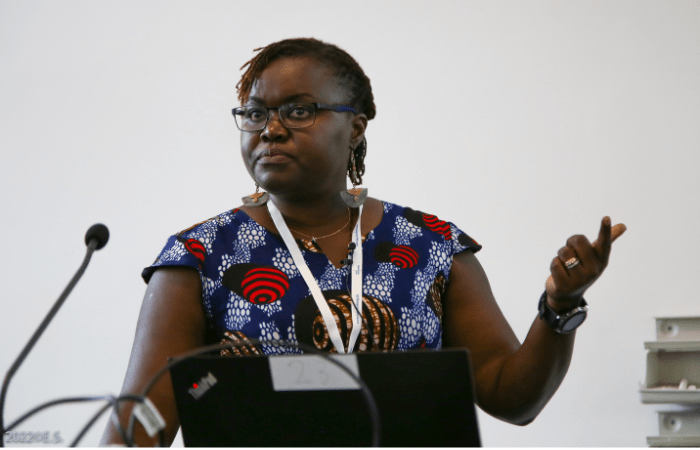
An exciting and lively talk by Miriam Laker-Oketta, research director of GiveDirectly, the world’s largest basic income project, on the role basic income plays in fighting climate change and preserving biodiversity.
From her rich experiential knowledge, Miriam Laker-Oketta provides real-life, real-world insight into what difference a basic income actually makes to people and their behavior, and how that affects climate change mitigation and biodiversity. GiveDirectly is now active in 11 countries. Miriam Laker-Oketta limits herself to Uganda, with cross-references to Kenya, Rwanda, and Congo.
After a brief introduction to the person by Prof. Sonny Mumbunan of the University of Indonesia and an introduction to the topic by Miriam Laker-Oketta, an impromptu audience poll follows, with half of the audience making suggestions as to why a basic income might be beneficial for climate and biodiversity, and the other half raising concerns of a contrary nature. Ms. Laker-Oketta then presents her solid and astonishing research findings, also exposing double standards and out-of-life claims against African countries. Her delight in research and the far-reaching as well as practical nature of her presentation make the lecture an experience and a gain in knowledge. After the lecture, basic income researchers and activists from various countries have their say with questions in the plenary discussion. Here, too, Laker-Oketta’s answers are illuminating and furthering. She fills mere suppositions with concrete empirical values, elicits the open research questions and elatedly leads to the right questions.
(Film, 80 min., Enno Schmidt)